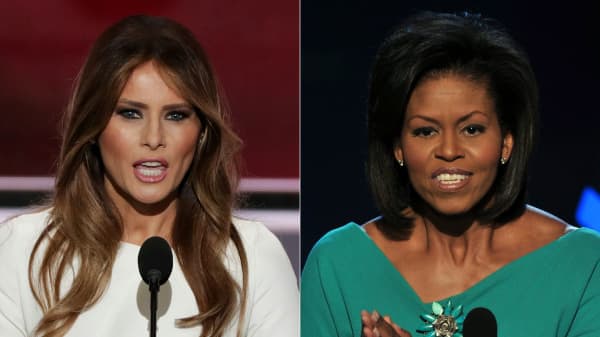What are the odds that the appearance of identical passages two political speeches eight years apart are entirely coincidental?
In the case of Melania Trump's GOP convention keynote Monday night, it turns out they're pretty long: at least 1 in 4,835,703,278,458,516,698,824,704, according to one expert in text analysis.
The potential first lady's high-profile convention debut was the most talked-about event so far at the GOP gathering in Cleveland. But not for the reasons the Trump campaign had hoped. Though well-received by delegates, it has been marred by remarkable similarities in two passages that echoed a similar address by Michelle Obama in 2008.
The Trump campaign dismissed charges of plagiarism, saying the words were "not unique."
"In writing her beautiful speech, Melania's team of writers took notes on her life's inspirations, and in some instances included fragments that reflected her own thinking," Trump spokesman Jason Miller told The Associated Press.
To be sure, the matching passages aren't exact; a comparison of the two speeches shows that Melania Trump's version substituted or dropped a few words from the extended passages in question.






